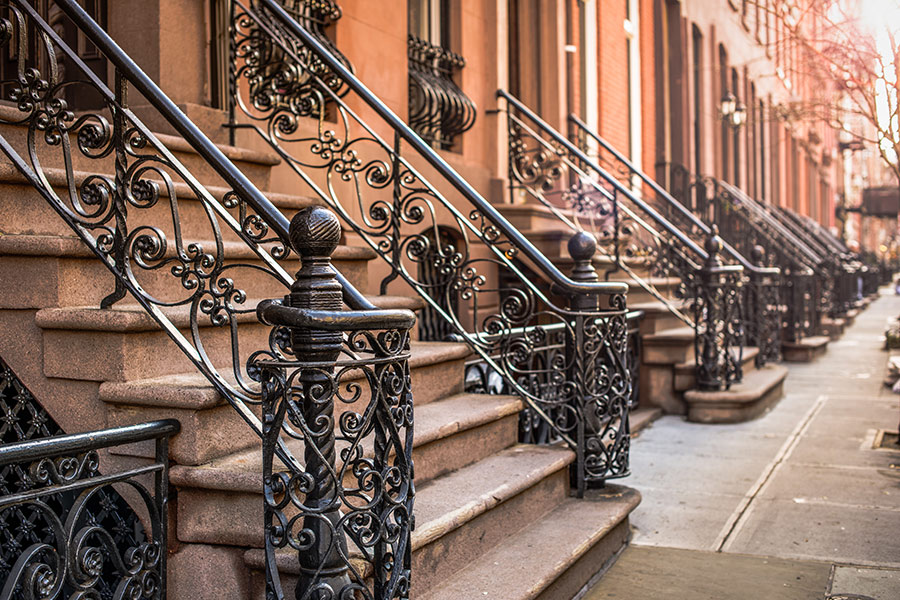
Important Things to Keep in Mind When Buying a Condo
- Condos represent a community form of ownership.
- In addition to your monthly mortgage payment, local property taxes (in most areas), and insurance costs, you will pay a condo fee, also referred to as “homeowners’ association” (HOA) dues or fees.
- Your lender will factor in the condo fee in determining how much of a loan you can qualify for. And, like detached homes, if your down payment is less than 20 percent of the purchase price, you may also have to pay PMI or private mortgage insurance each month-which is generally cancellable once you have more than 20% equity in your home.
- Your monthly income, credit history, and monthly debts – the “home-buying basics” — help determine your mortgage eligibility.
Questions to Ask Your Real Estate Professional, Lender, and Condo Association
To help you learn more about purchasing a condo, here are some questions you may want to ask or research.
Remember, this is only a partial list to help you get started. If you have questions, ask your lender, real estate professional, real estate attorney, or the officers of the condo’s HOA. You may also find it helpful to do some online research.
In most cases, you have a limited period to review the condo documents after the seller accepts your purchase contract. Talk to your real estate professional, know your rights—and, if necessary, consult a real estate attorney.
- How much can you afford to spend on a condo? Your lender will look at what your total monthly housing costs would be, taking into consideration the condo fee, property taxes, PMI (if applicable), plus the principal and interest payments on your mortgage loan. One of the best ways to determine how much you can afford is to get pre-qualified before you go condo shopping-ask your lender how.
- What are your legal rights and obligations under the condo bylaws? As a prospective purchaser, you will receive a copy of the condo bylaws and other documents to review so you understand the rules about remodeling, leasing your unit, fees, penalties, parking restrictions, pet ownership, and other obligations. If you have any questions, you should talk with an officer of the condo association or a real estate attorney with experience in your area.
- What is included in the condominium fee? Are utilities, hazard insurance premiums, or real estate taxes paid directly by homeowners, or are they included in the condo fee? Is there on-site property management?
- Is parking deeded and/or assigned? Are there spaces for visitors? How many parking spaces are provided for the unit you want to purchase? Can spaces be purchased?
- How are officers elected to the condo board or HOA?
- How frequently are elections held? What are the qualifications to run for office? How long do officers serve? Are there term limits?
- What kinds of modifications to the unit are allowed? Is there a committee that reviews and approves changes?
- Can you talk to some owners in the community or building? What is it like living there? For example, is maintenance handled well? Is there much turnover? Are there concerns about noise levels or other problems?
- What is the remaining useful life of the community or building’s major components? These components include the roof(s), sewer and water pipes outside individual units, parking lots or garages, elevators, and other major building infrastructure. Is there a potential impact on the value of your condo?
- How much is in the cash reserve fund for future repairs? Are there any pending assessments or major repair projects that currently exceed the repair fund? Has the HOA’s accountant offered recommendations, or has the HOA obtained a study on the adequacy of the cash reserve fund? Having adequate funds for both routine maintenance and cash reserves for major repairs or unexpected costs is critical. Suppose necessary repair costs exceed the available funds. In that case, a special assessment can be imposed on all unit owners in the condo project, requiring a one-time payment or increasing the monthly condo fee for a period of time. Ask if the condo has any history of special assessments.
- Does the master property insurance policy cover full replacement costs? Does the policy have a building ordinance clause to cover expenses associated with bringing the building up to code in the event rebuilding is required?
- Does the master insurance policy cover the interior of the units as well as the “common elements” used by all residents? If not, you will probably be required under the terms of your mortgage financing to purchase and maintain an insurance policy to cover your condo’s interior, commonly known as an “HO-6” policy.
- Is the complex renter-friendly? If you are looking at your condo as a long-term investment, you may not want any restrictions on your future ability to rent out or sublease the unit. But if you plan to make the condo your long-time residence, you may prefer that owner- occupancy is high, so you’ll be living among property owners (like you!). Inquire about all terms and conditions by which you can rent your unit, as there may be seasonal or other restrictions.
- Ask to see the minutes from recent association meetings. This may help you identify the current “hot button” issues and see how they are being addressed.
Source: mortgageone.com

